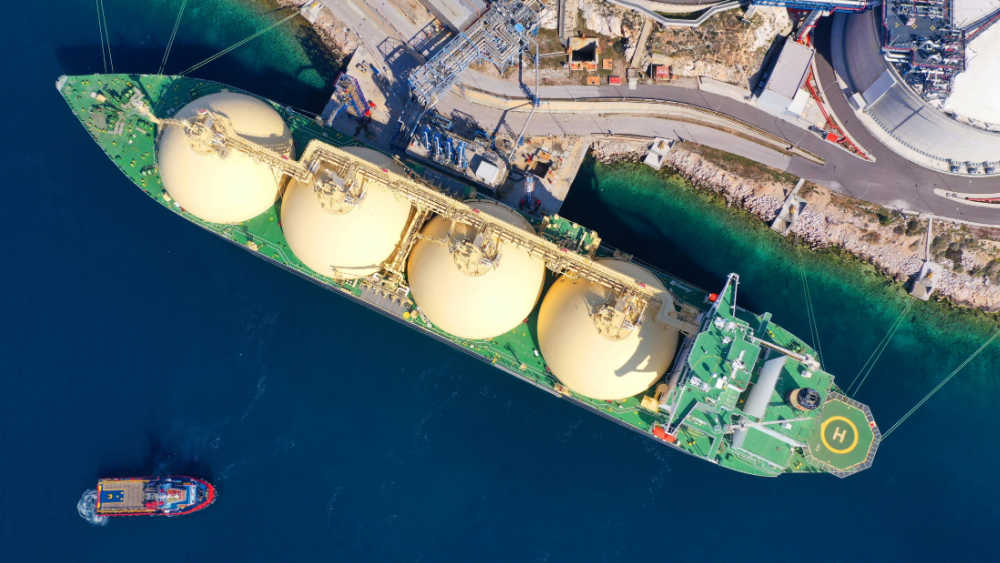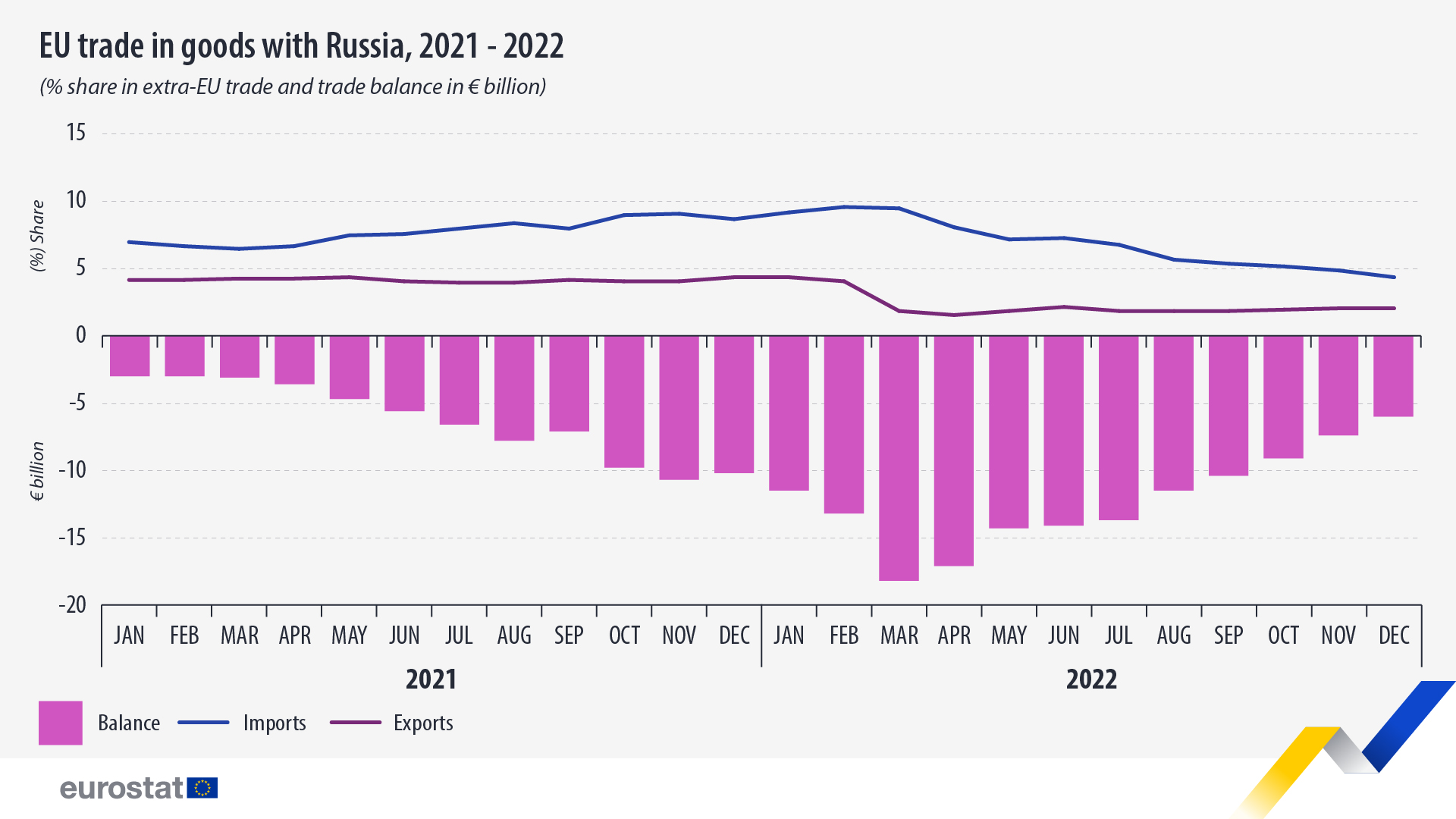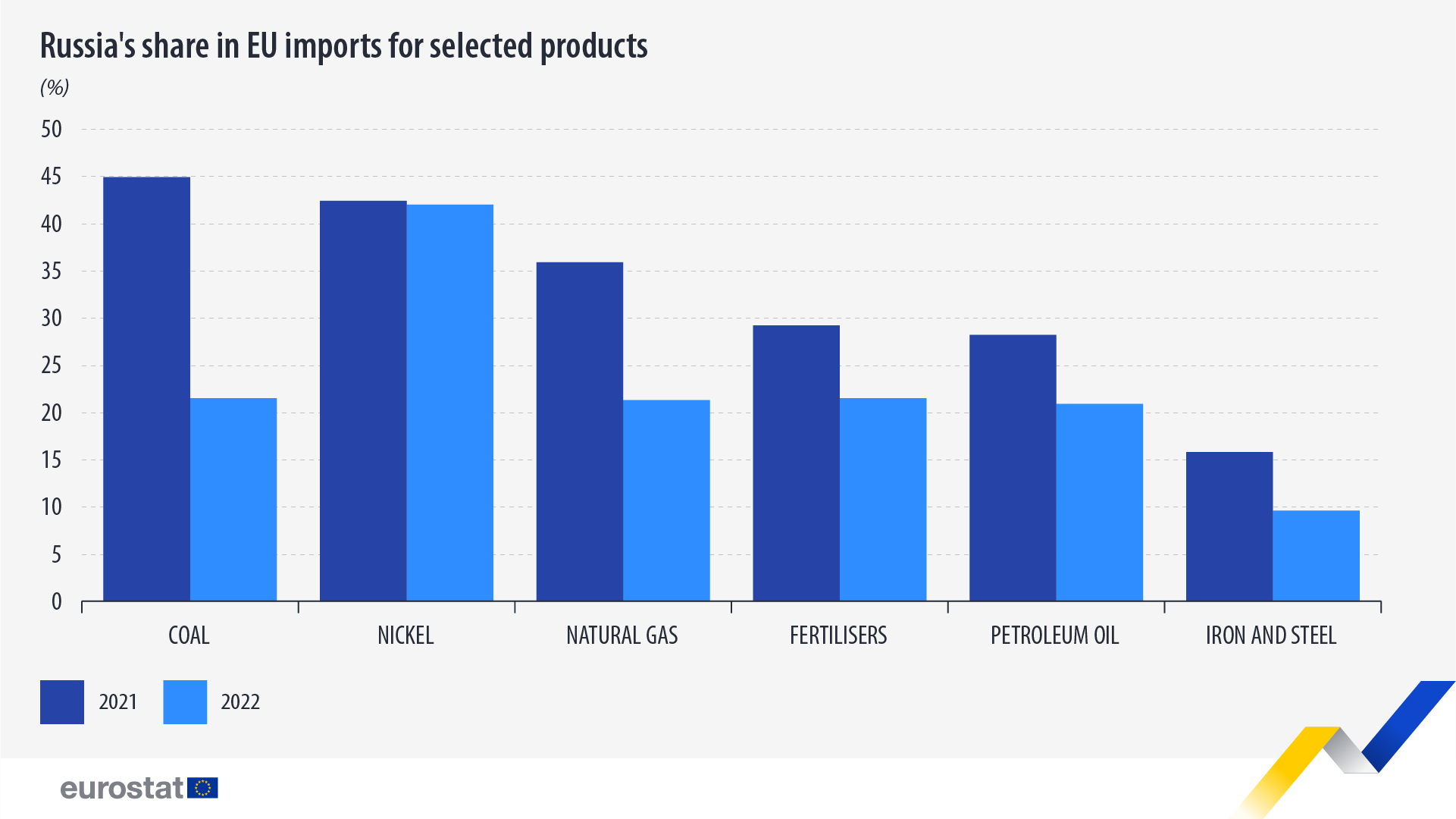EU trade with Russia continues to decline

EU trade with Russia has been strongly affected following Russia's invasion of Ukraine, with the EU imposing import and export restrictions on several products. The effects of these measures have been particularly visible in the latest months.
Considering seasonally adjusted values, both exports and imports dropped considerably below the levels prior to Russia's invasion. Russia’s share in EU’s extra-EU imports fell from 9.5% to 4.3% between February 2022 and December 2022. Over the same period, Russia’s share in the EU’s total extra-EU exports dropped from 4.0% to 2.0%.
The EU’s trade deficit with Russia peaked at €18.2 billion in March 2022 before progressively decreasing to €6.0 billion in December 2022. The value of imports from Russia fell by 53%, from €21.8 billion in March 2022 to €10.3 billion in December 2022.
Source dataset: ext_st_eu27_2020sitc
With Russia being gradually replaced by other trade partners, Russia’s share in extra-EU imports for six key products decreased, with strong declines visible for coal, natural gas, fertilisers, petroleum oil and iron & steel.
In particular, the highest drops have been recorded for coal (from 45% in 2021 to 22% in 2022), natural gas (from 36% to 21%), fertilisers (from 29% to 22%), petroleum oil (from 28% to 21%) and iron & steel (from 16% to 10%).
Source dataset: DS-045409
For more information
- Statistics Explained article on Russia-EU - international trade of main product groups
- Thematic section on international trade in goods
- Database on international trade in goods
- Statistics 4 Beginners on trade in goods
- EU solidarity with Ukraine
Methodological notes:
- The following Harmonised System (HS) codes were used for selected products:
- HS 2701: coal; briquettes, ovoids and similar solid fuels manufactured from coal.
- HS 271111 + 271121: petroleum gases and other gaseous hydrocarbons; liquefied, natural gas and petroleum gases and other gaseous hydrocarbons; in gaseous state, natural gas.
- HS 75: nickel and articles thereof.
- HS 2709 + 2710: petroleum oils and oils obtained from bituminous minerals; crude and petroleum oils and oils from bituminous minerals, not crude; preparations n.e.c, containing by weight 70% or more of petroleum oils or oils from bituminous minerals; these being the basic constituents of the preparations; waste oils.
- HS 31: fertilizers.
- HS 72: iron and steel.
- The six products were selected because of their relevance with respect to total extra-EU imports in terms of share or in terms of their absolute value.
If you have any queries, please visit our contact us page.


